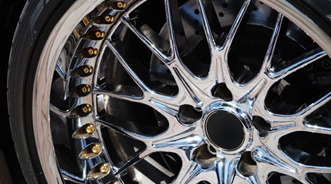DamageMAX Comprehensive Salvage Title Study Includes 3 Findings, 4 Recommendations

By subscribing, you agree to receive communications from Auto Remarketing and our partners in accordance with our Privacy Policy. We may share your information with select partners and sponsors who may contact you about their products and services. You may unsubscribe at any time.
ATLANTA –
DamageMAX, a buyer of damaged vehicles, recently completed a comprehensive analysis on the impact of salvage title brands on repaired and damaged vehicles, arriving at three important findings and four proposed recommendations.
For the study, the company reviewed more than 5 million wholesale vehicle transactions through June of this year to identify trends in value diminution associated with salvage (rebuilt) title brands.
DamageMAX's key findings included:
—Rebuilding salvage branded vehicles (even to factory specifications) generally has a negative return on investment.
—Luxury car and pickup segments suffer the most from salvage title branding.
—SUV and midsized segments are least impacted by salvage brands.
Subscribe to Auto Remarketing to stay informed and stay ahead.
By subscribing, you agree to receive communications from Auto Remarketing and our partners in accordance with our Privacy Policy. We may share your information with select partners and sponsors who may contact you about their products and services. You may unsubscribe at any time.
Title Brand Classification
DamageMAX explained there are different terms associated with salvage branding. These are controlled at the state level and are unique similar to the administration of titles which come in many shapes, sizes, colors and, of course, prices.
For the purposes of this study, analysts indicated only salvage, rebuilt and rebuildable branded vehicles were included and non-rebuildable/parts-only title vehicles were excluded.
Not all states have salvage title thresholds, but those that do generally range from 60 to 100 percent of the fair market value (FMV) of the vehicle, which insurance carriers refer to as actual cash value (ACV).
"Salvage thresholds are in place to discourage the public from repairing vehicles if the extent of the collision damage is beyond what that state department of insurance deems as safe," DamageMAX said.
When collision damage is severe, the company indicated that certain states, including Florida and Michigan, mandate that a Certificate of Destruction or scrap title be issued. This requires that the vehicle identification number (VIN) is decommissioned and the vehicle be sold for parts.
"Insurance carriers favor the term ACV in place of FMV to help avoid disputes with their claimants who seek the maximum reimbursement (retail) for their total loss," DamageMAX said.
Scope of Data
Vehicles from 1997 to 2013 were evaluated in clean and damaged condition. Salvage title discounts were established by model year.
"We found that the sample size used was large enough to establish firm trends without granularity of criteria typically used (make/model/body) for predictive pricing," DamageMAX said.
The study determined the average discount a salvage title vehicle will experience when compared to an analogous clean title is 66 percent, meaning that the vehicle will only fetch 34 percent of average wholesale in repaired form.
"Conventional wisdom dictates that an unrepaired vehicle is worth less than a repaired vehicle of the same year, make, model and miles. This is not always true as a repaired vehicle with a salvage title is often worth less than an unrepaired vehicle with a clean title," study orchestrators said.
"Parts buyers (recyclers) typically look to buy salvage title vehicles because they do not want to compete with wholesalers and retail dealers who intend to repair and resell to an end user," they continued. "This segment of buyers also includes exporters who have no interest in what the title brand is because the title is simply an instrument needed for the export process."
Conclusions and Recommendations
DamageMAX wrapped up its analysis by offering four final conclusions, including:
—Generally speaking, salvage title vehicles should not be rebuilt.
"Financially, it is not a good investment and there is rarely an exception to this rule of thumb," DamageMAX said. "States with salvage title thresholds have created these thresholds to protect the residents of their home state; and in these states, the brand effectively carries a significant financial deterrent: value diminution.
"To ignore this issue and invest an inordinate amount of money trying to rebuild and restore a passenger vehicle to be roadworthy is not wise," the company added.
—Titles should only be branded if warranted.
"Many insurance carriers are overly conservative, salvage branding a vehicle that could easily be made road worthy safely," DamageMAX said. "Some states (for example, Pennsylvania) require that recovered theft vehicles be branded with a salvage title if a total loss settlement is issued by an insurance carrier. The physical condition of the vehicle does not matter and is actually not even considered.
"We believe that this is extreme, but the law is controlled by the state, and the state wants that vehicle brand to follow that vehicle for the remainder of its life," the company went on to say.
—Wrecked vehicles with structural damage (greater than $3,500 as a guide) typically yield better returns if sold unrepaired.
—Stigma history, title brands, and poorly performed previous repairs are "value killers."
Continue the conversation with Auto Remarketing on both LinkedIn and Twitter.


